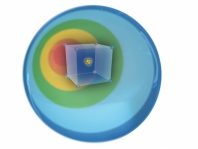 Design of experiments (DoE) is a technique for planning experiments and analyzing the information obtained. The technique allows us to use a minimum number of experiments, in which we systematically vary several experimental parameters simultaneously to obtain suf cient information. Based on the obtained data, a mathematical model of the studied process (e.g., a protein puri cation protocol or a chromatography step) is created. The model can be used to understand the in uence of the experimental parameters on the outcome and to nd an optimum for the process. Modern software is used to create the experimental designs, to obtain a model, and to visualize the generated information.
Design of experiments (DoE) is a technique for planning experiments and analyzing the information obtained. The technique allows us to use a minimum number of experiments, in which we systematically vary several experimental parameters simultaneously to obtain suf cient information. Based on the obtained data, a mathematical model of the studied process (e.g., a protein puri cation protocol or a chromatography step) is created. The model can be used to understand the in uence of the experimental parameters on the outcome and to nd an optimum for the process. Modern software is used to create the experimental designs, to obtain a model, and to visualize the generated information.
In a protein research lab or during process development, a DoE approach can greatly improve the ef ciency in screening for suitable experimental conditions, for example, for cell culture, protein separation, study of protein stability, optimization of a process, or robustness testing. This handbook provides an introduction and an overview of DoE, followed by a step-by-step procedure that targets both newcomers and those with previous experience in DoE. The focus is on DoE for protein production and puri cation but the theory can be applied in many other applications.